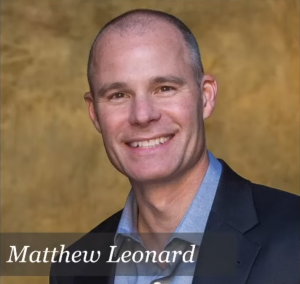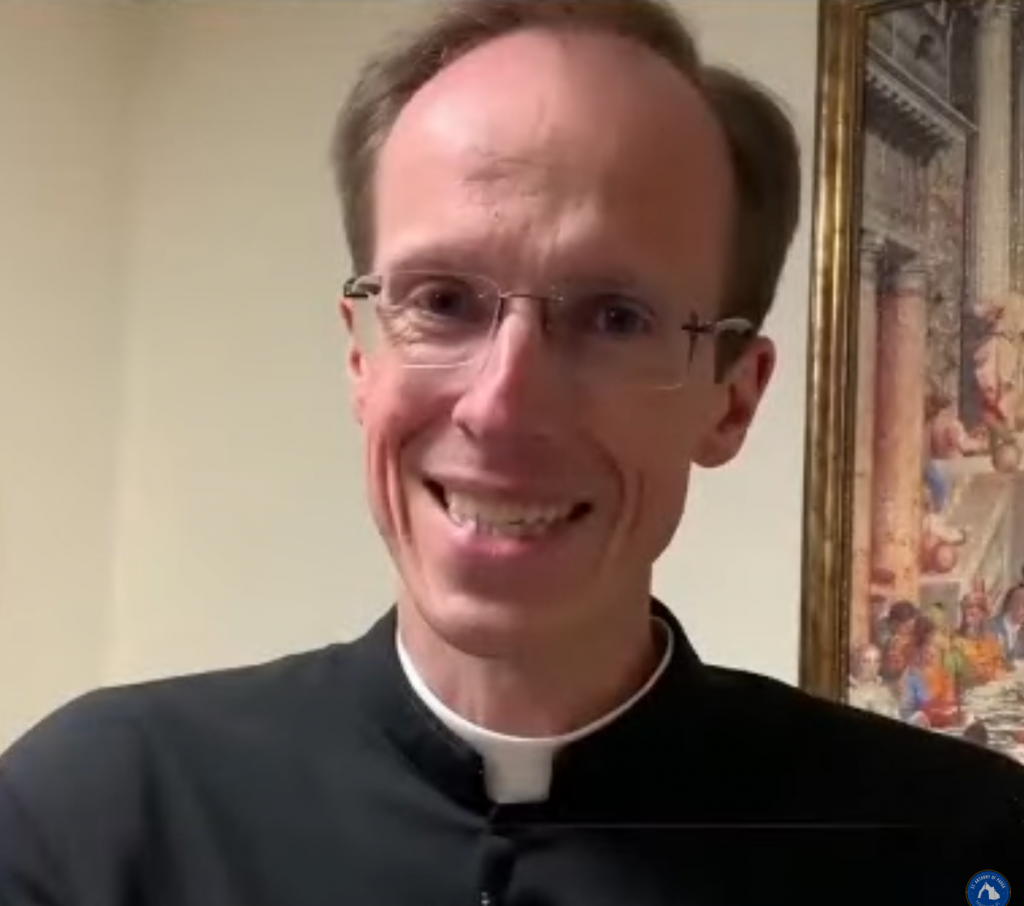Let me share three quick stories about God’s humbling my pride. Years ago, when I was in New York, a classmate was angry at me, and, during dinner, said, ‘You know, you’re really arrogant.’ I was silent and later angry. But then I reflected: While that fellow is upset and has his own problems, I’ve got to improve how I act.
Next, some time ago, Archbishop Miller told me that I intimidate people—that criticism really helped, because, afterwards, I made a decision to be more gentle in the way I present problems.
Finally, one time, I was informing my spiritual director of a gift that God gave, and he acknowledged the gift, but added, ‘Don’t think you’re better than others… because you’re not.’ Those words were extremely helpful! What I have is a gift—I didn’t deserve it and I’m not better because I have it.
Humbling our pride is a grace, so, just to prepare you, I hope you’d be okay if I later share some constructive criticism, where I think you could grow. I’m not trying to hurt, only trying to help you become more like Jesus. And none of this will take away from the fact that you are good and loved.
The Gospel begins, “Jesus told this parable to some who trusted in themselves that they were righteous, and regarded others with contempt” (Lk 18:9). This parable is for us: Because we may believe we’re righteous, we think we’re already humble, when we’re probably prouder. One grace God the Father has given me is that previously I used to acknowledge that I was proud but didn’t really believe it; now I believe it. Because it’s true. It’s our sinful condition that we ‘trust in ourselves that we are righteous,’ and think we don’t need God.
Recently, a Grade 6 student asked me the question with which we deal multiple times a year, ‘What if someone doesn’t know about Jesus, but is a good person and donates to charity—will that person go to heaven?’ I gave the standard answer, ‘How would your parents feel if your brother said, “Mom, Dad, I don’t love you, but I’m still a good person”?’ However, a new insight came to me: Behind the question of a so-called good person who doesn’t need Jesus is pride. We really believe we don’t need God. We’re already good, so we don’t need His help. If people were really humble, they’d say, ‘Look how much I’ve been given. Even though I donate to charity, I still hurt people. I need help. Maybe I should look for God.’
“Two men went up to the temple to pray, one a Pharisee and the other a tax collector. The Pharisee, standing by himself, was praying thus, ‘God, I thank you that I am not like other people: thieves, rogues, adulterers, or even like this tax collector. I fast twice a week; I give a tenth of all my income’” (18:10-12). It’s good that he fasts and gives money, but even that’s a gift from God; also, thieves, rogues, adulterers, and tax collectors are doing sinful actions. Yet he shouldn’t look down on them, because, without God’s grace, he’d be doing the same; and, if he were really humble, he would compare himself to holy people, not sinners.
For a number of years, I thought what we were doing here at St. Anthony’s was amazing: We have all this spiritual engagement compared to other parishes. Visitors would compliment us and I’d say, ‘Praise God! It’s great!’ But they could sense my pride: Yes, I was praising God, but I was comparing us to other parishes who were struggling. I should have acknowledged what God has done, but not compare ourselves to others, and then focus on where we need to be more like Jesus.
Now, let’s talk about the homily, and feel free to laugh. It’s no secret that Catholics joke about the homily being boring. And yet, are you aware that most priests think their homilies are good or, at least, good enough? Why the discrepancy? I think it’s because of pride. And I’m proud of my homilies—this is a problem.
I’d like to suggest that there’s a similar discrepancy in most Catholics: Most Catholics in the pews think they’re good or good enough. They think, ‘I’m not perfect, but at least I come to Mass every Sunday. At least I’m not like other Catholics who show up late, who don’t show reverence.’ And most daily-Mass Catholics think they’re better than the Sunday-Mass Catholics! But, why compare ourselves to people who struggle? The point is: We’re probably prouder than we think.
“But the tax collector, standing far off, would not even look up to heaven, but was beating his breast and saying, ‘God, be merciful to me, a sinner!’” (8:13). As a tax collector, he was probably cheating his people, so hopefully he changed (Cf. Lk 3:13). But the one redeeming quality that allowed him to receive God’s help is that he knew he needed God.
Humility is not about beating ourselves up, because God loves us. It’s not about being depressed about our sins, because when we do that, we’re focused on ourselves, not on God. It’s not about avoiding serving people because we’re sinners. And it’s not about downplaying our gifts.
Humility is about truth. St. Teresa of Avila writes, “Once I was pondering why our Lord was so fond of this virtue of humility, and this thought came to me… It is because God is supreme Truth; and to be humble is to walk in truth, for it is a very deep truth that of ourselves we have nothing good but only misery” (Interior Castle, VI,10,7). She doesn’t say we have nothing good at all, only that it doesn’t come from ourselves. This is why she didn’t beat herself up but was joyful and peaceful.
So, here is my attempt at a loving critique: You are good and you are loved (I love you), and you have many gifts, but they all come from God. Consequently, you’re not as good as you think. I think many of you struggle with pride. One reason I believe this is because you don’t show signs of eagerness to grow; the zeal to get out of your comfort zone isn’t that great. Even many of our leaders often act like they’re experts already. By the way, if there’s a part in you that’s thinking, ‘I’m so glad Fr. Justin is saying this. My husband and children really need to hear it,’ let me tell you, you’re the one who needs to hear this. You’re the strong disciple, but not strong enough. And, if you’re thinking, ‘My wife is probably thinking that I need to hear this, so I’m happy Fr. Justin’s saying she needs to improve,’ let me tell you, your wife is right! You need to grow! And so, the solution for you and me is zeal for growth. ‘God, be merciful to us. We need Your help to grow.’
On December 7 and 8, 2025, we have a great opportunity to grow, as we’re having the internationally-famous Matthew Leonard come, speaking about the science of sainthood.  Many of you are excited because you know how good he is. He’s our first speaker encouraging 500 of us to commit to weekly adoration.
Many of you are excited because you know how good he is. He’s our first speaker encouraging 500 of us to commit to weekly adoration.
Jesus says, “Whoever exalts himself will be humbled, but whoever humbles himself will be exalted” (18:14). When we’re proud, criticisms cut us down, but when we’re humble, criticisms build us up, because they prune us and show us where to grow. We are sons and daughters of the Father—that’s our identity, and no criticism can ever take that away. However, once we realize that we’re children of the Father, then we’re secure and desire to improve.
A spiritual friend named Fr. George Elsbett is considered to be one of the most dynamic parish priests in Europe. Yet, one thing I’ve noticed is that, even though his parish is, in many ways, stronger than ours, whenever we meet, he always asks me questions about what the Holy Spirit is doing here. So, I’ve learned something from him about humility: He knows all his many gifts have come from God but is still zealous to grow.


